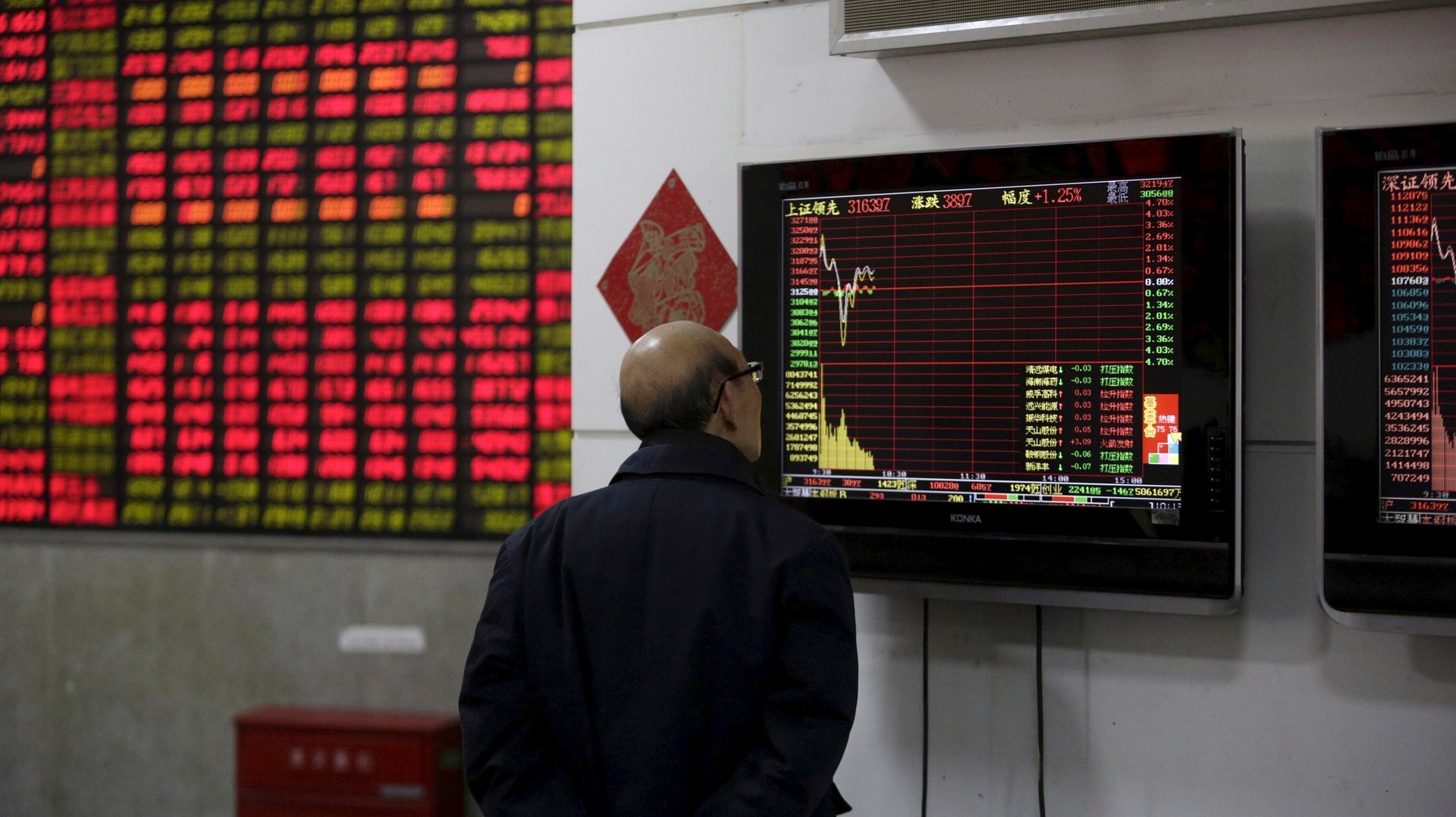Hurray! China’s markets did not melt down
This article was updated Jan. 8 at 3:30pm in Hong Kong.


This article was updated Jan. 8 at 3:30pm in Hong Kong.
The trading day after China’s unpopular, panic-inducing circuit breaker was scrapped was volatile, but not the market meltdown that global investors feared. The Shanghai Composite and CSI 300 index started strong on Friday (Jan. 8), then yo-yoed back and forth for the first 40 minutes of trading, before heading north mid-morning and finally closing about 2% higher than they opened.
What’s going on?
China’s stock markets right now are mostly a domestic fight: Foreign investors pretty much fled the market this summer, as Beijing’s heavy-handed attempts to prop up plummeting markets flooded them with over $1 trillion in stimulus.
What’s left is a battle that pits the “retail” investors who traditionally buy most of China’s stocks, against the “national team” of state-owned enterprises and their employees who were forced to buy an estimated $235 billion in stock in the third quarter of 2015 to keep the market afloat. (Short-sellers in China have been mostly quashed, through trading rules and investigations into “malicious” activity.)
Retail investors were apparently looking to exit the market Friday, but some advised caution. “Don’t rush to sell into corrections or go bottom fishing in the stock market,” Ziyang Shenqi advised his fellow investors in a stock forum (link in Chinese), “We need to wait for the bounce, sell the stocks when they are going up.”
That’s probably wise, given there’s going to be a lot of government stimulus acting in the market going forward.
Although a six-month stock holding period expires for many of those state-owned investors at the end of trading today, a new rule was introduced on Jan. 7 (link in Chinese) to take its place. Shareholders who own more than 5% of a listed company are prohibited from selling more than 1% of total shares outstanding over three months. They must also give the stock exchange 15 trading days advance notice.
And at least six (link in Chinese) central government-owned enterprises vowed yesterday (Jan. 7) that they will not sell stocks of their listed subsidiaries, to help the government to maintain the stock market stability.
Nonetheless, China’s stocks are still considered extremely overvalued (paywall) when compared to the rest of the world’s markets.
What’s an investor, market watcher, or analyst who cares about market fundamentals to do? Sometimes, it seems, humor is the best response.
A widespread explanation of the circuit breaker on China’s microblog Weibo used an analogy to playing card games in a casino to explain what was happening.
You brought 3,000 yuan to play cards, and lost them all in half an hour. You took a rest for 15 minutes and went downstairs to withdraw 5,000 yuan more from the ATM. And you lost it all again. Then the winner says, “You had bad luck today, just go.”
“Why would only stock markets have circuit breakers? Such a good mechanism to let everyone calm down should be promoted,” a former anchor from the state broadcaster wrote yesterday after the cancellation of the circuit breaker was announced. “When the Air Quality Index is beyond 500, stop breathing for 15 minutes. When it passes 700… then it’s the end.”
With China’s markets seemingly divorced from fundamentals for the foreseeable future, perhaps it’s time for a reminder of the immortal words of China’s paramount leader Deng Xiaoping:
Echo Huang Yinyin contributed reporting.